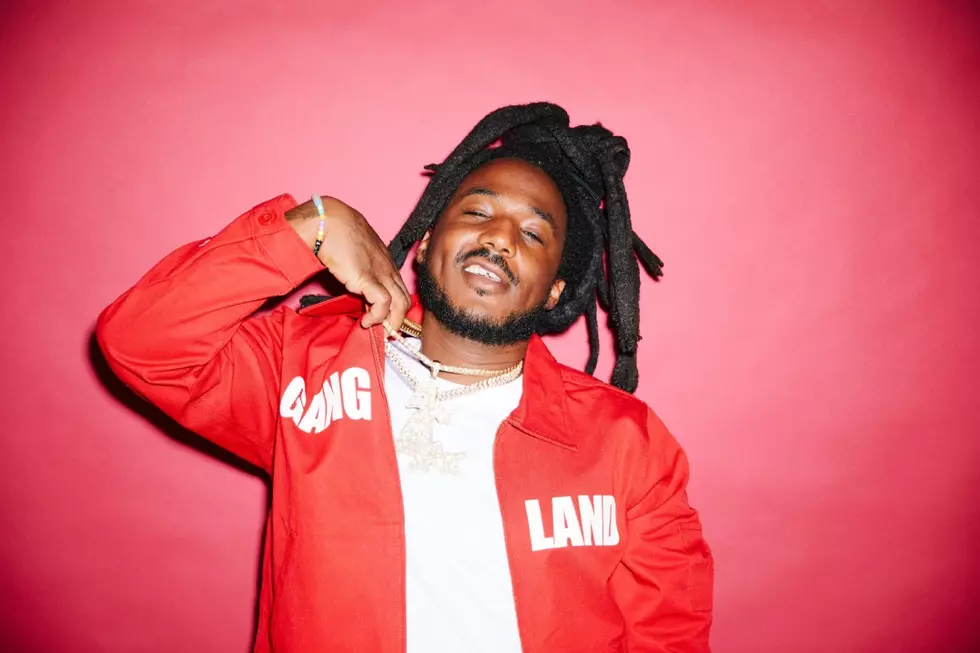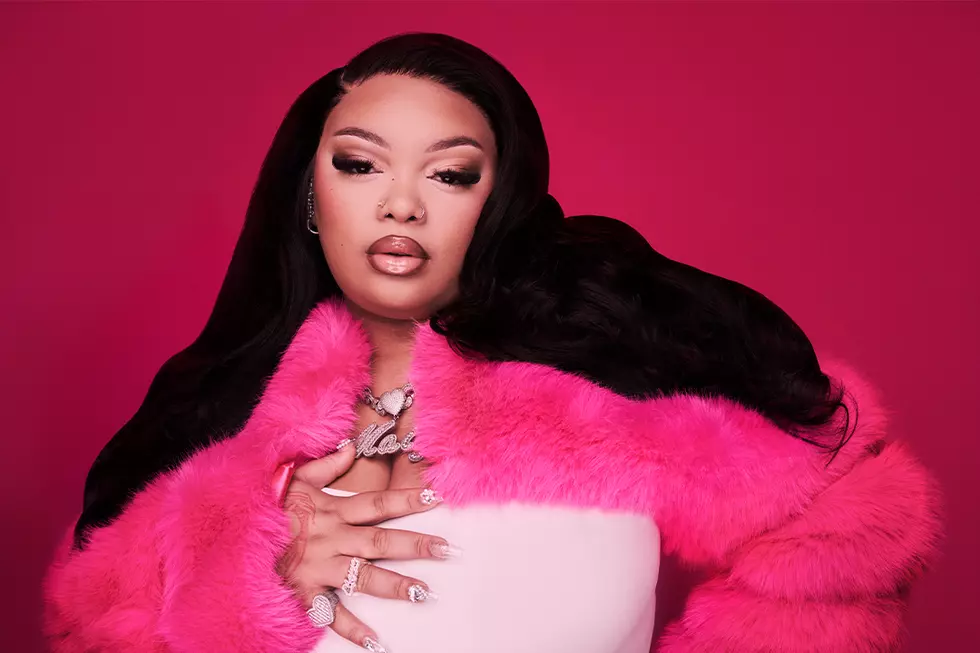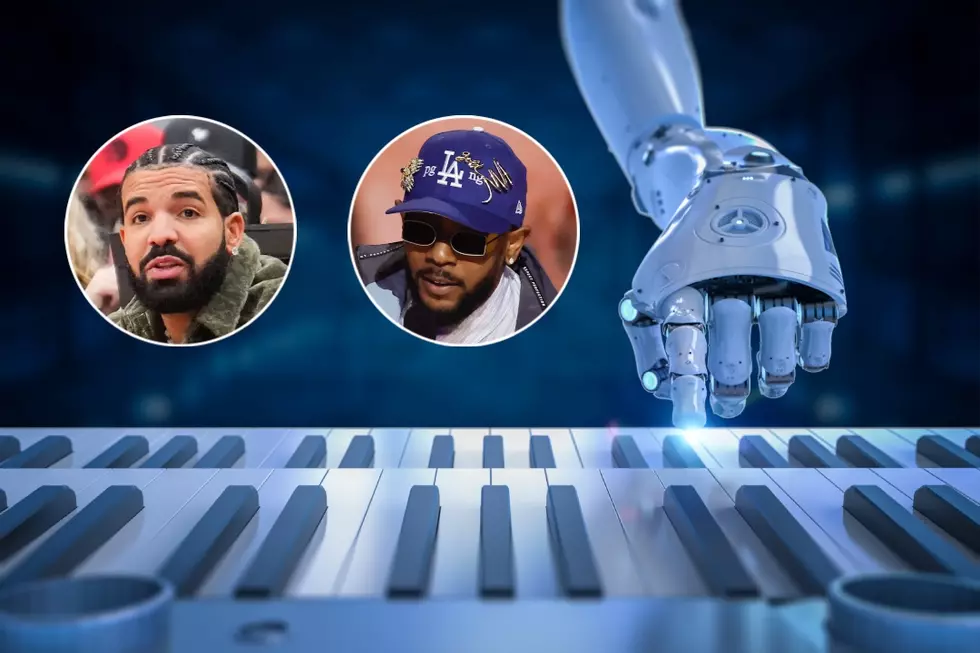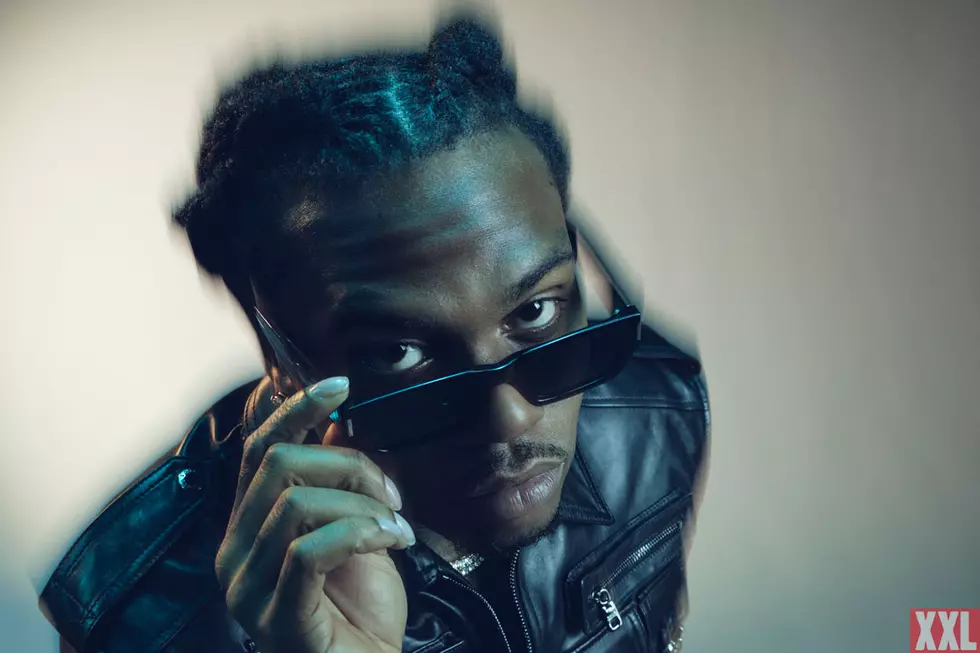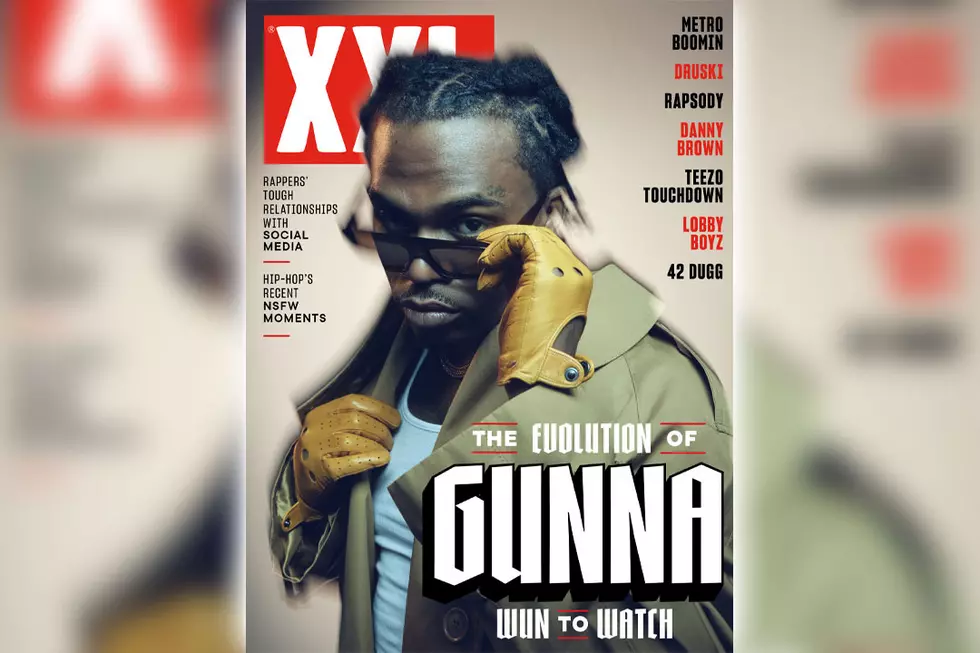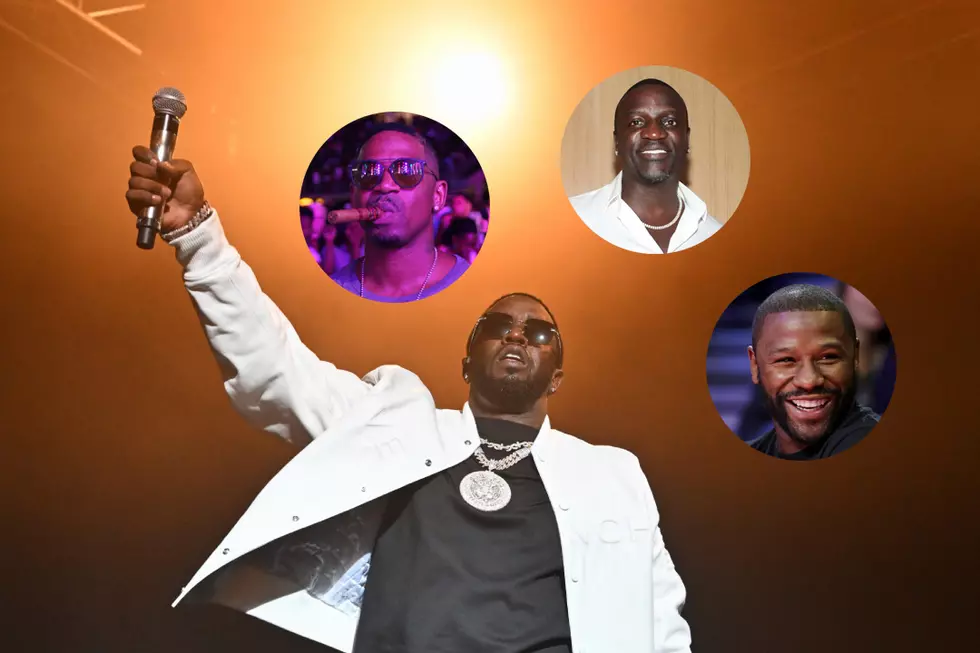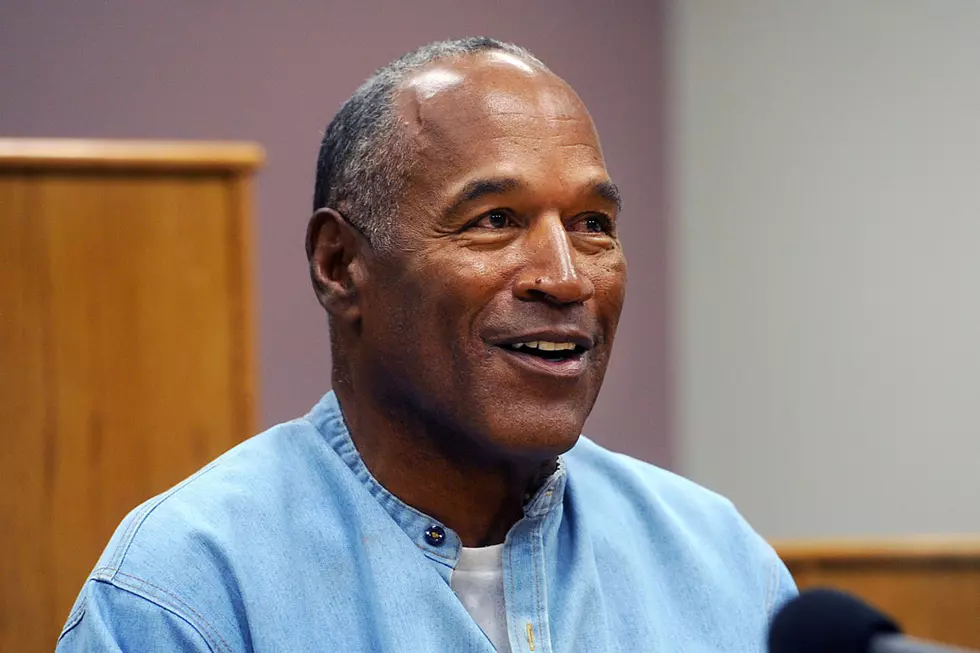
Lil Peep, a Tragic New Talent Gone Too Soon
“When I die You'll love me.” Lil Peep shared those somber words in one of his final Instagram posts on the day he died. Whether incited by innocent hubris or a deeper premonition, it’s a tragic epitaph for the ascendant rapper known for baring his soul—vulnerabilities, scars and all—to legions of fans.
"I just wana [sic] be everybody's everything I want too much from people but then I don't want anything from them at the same time u feel me I don't let people help me but I need help but not when I have my pills but that's temporary one day maybe I won't die young and I'll be happy?" he added as a caption in another post. "What is happy I always have happiness for like 10 seconds and then it's gone. I'm getting so tired of this."
Just five days after he sent that tweet, Lil Peep was reportedly found unresponsive on his tour bus in Tucson, Ariz. on Nov. 15 at 8:53 p.m. Sgt. Pete Dugan, of the Tucson Police Department, told People that first responders tried to revive him but were unsuccessful. He was pronounced dead at the scene. The exact cause of Peep’s death won’t be known until the medical examiner releases an official toxicology report, but authorities suspect that a drug overdose—likely from the anxiety medication Xanax—was the cause. Law enforcement found drug paraphernalia and narcotics inside the tour bus. “A 21-year-old should not just drop dead for no reason,” Dugan said.
"I am shocked and heartbroken,” said CEO Sarah Stennett of First Access Entertainment, who partnered with the rapper in 2016. “I do not believe Peep wanted to die, this is so tragic. He had big goals and dreams for the future which he had shared with me, his team, his family and his friends. He was highly intelligent, hugely creative, massively charismatic, gentle and charming. He had huge ambition and his career was flourishing.
"I have spoken to his mother and she asked me to convey that she is very, very proud of him and everything he was able to achieve in his short life. She is truly grateful to the fans and the people who have supported and loved him.”
Peep's death impacted many in the hip-hop community, with several artists mourning via social media. “I’m never gonna be ok," tweeted iLoveMakonnen. "I’ll always love u, we became best friends and made some of the best music I have ever been apart of. Thank u for being my real friend.”
Lil Yachty and Juicy J also expressed their condolences.
Born Gustav Ahr, Lil Peep became synonymous with a burgeoning wave of voices in hip-hop, so-called emo trap and SoundCloud rap. Fueled by melancholy melodies and emotionally raw verses, he was the quintessential angsty millennial—sometimes aggressive and self-aggrandizing but also, self-pitying and sad. A White kid from Long Island, his visage—inked with the mantra “Get Cake Die Young”—hinted at darker thoughts beneath his bleach blond hair, goofy smile and piercings.
In 2015, he released his first mixtape, Lil Peep Part One, and EP, Feelz, followed by 2016’s Crybaby and Hellboy. Deftly leveraging social media, Peep garnered a massive online following—reflected in his popularity on SoundCloud and YouTube—which culminated in his debut album, Come Over When You’re Sober, Pt. 1, which was released in August. The LP has over 20 million combined plays on SoundCloud. Bolstered by stinging guitar riffs and slick 808s, the project is a confluence of rap and alternative rock; inspired by equal parts of Nirvana’s Kurt Cobain and Future.
His lyrics reflect a bleak reality; he battles pain and depression amid drug-addled bars. “Everybody telling me life's short, but I wanna die (I wanna die),” he says on “The Brightside.” “Now I'm getting high again, tonight.” Death is a recurring theme with several references to drugs and prescription painkillers. “I hear voices in my head, they tellin’ me to call it quits. I found some Xanax in my bed, I took that shit, went back to sleep,” he says on “Praying to the Sky.” On “Angeldust,” he concludes, “Gettin' high ’cause my life don't mean shit to me.”
It’s reductive to categorize Peep as simply a rapper with a drug problem. In January, he released the music video for “girls,” celebrating trans, LGBT and women of color, often ignored by hip-hop visuals. In August, he came out as bisexual.
“My goal in music is to save people’s lives like how my life was saved. I was very suicidal and depressed and I was addicted to some drugs and a lot of different artists helped me get out of that with their direct lyrics,” Peep told XXL in May. “It’s amazing how specific some lyrics are. Sometimes you feel like an artist is talking directly to you. That’s what I try to do with my music. I try to think about different problems people are having.”
The death of Lil Peep has placed a sobering light on how we deal—or don’t—with the complexity of mental health in hip-hop. There is no causal evidence that Peep’s death was a suicide. There has been speculation that he may have unknowingly ingested prescription drugs laced with something and died in his sleep.
However, a dialogue about the correlation between depression and addiction has surfaced. His brother has called it an accident, saying Peep was “super happy with where he was in life.” The rapper's manager, Chase Ortega, on the other hand, implied that he was aware Peep had a problem, tweeting, "I've been expecting this call for a year. Mother fuck."
“We Would love 2 stop .....But Do You Really Care Cause We Been On Xanax All Fucking Year,” shared Lil Uzi Vert on Twitter. “Rip Buddy I 100% Understand and I Don't Fault U.”
According to the Centers for Disease Control and Prevention (CDC), overdose deaths involving prescription opioids have quadrupled since 1999. Narconon shares that between 2004 and 2010, the number of people who visited emergency rooms from the effects of Xanax increased from 46,000 to nearly 125,000. Prescription addiction is a national crisis and in hip-hop, pill-popping is a drug of choice for artists across the genre.
In the aftermath, Uzi—who has grappled with his own addiction and sadness on songs like “XO Tour Llif3”—shared thoughts on social media that point to him attempting to kick his own substance abuse habit. "Sober 2 day I have been shaking. I have been cursing my love ones out and fighting In the studio with no thoughts in my head,” he tweeted. “Teeth biting down because I just wanna be angry at something. maybe I will just smoke weed tonight."
At this time, it's unknown how the zeitgeist of hip-hop will be affected in light of Peep’s death. The lines between artistic expression, having a good time and a genuine cry for help are more blurred than ever. What is the onus on artists, fans and the industry to deter future incidents? In his last interview with XXL, Peep said that he hopes that his legacy is one of positivity. "I want people to hear what I have to say and I want to be able to get a lot of points across," he shared. "I want to change the game right now in a lot of positive ways, positive changes it needs to see in order to grow."
XXL reached out to the Tucson Police Department and Lil Peep’s management but did not receive comment for this article.
See New Music Releases for November 2017
More From XXL

